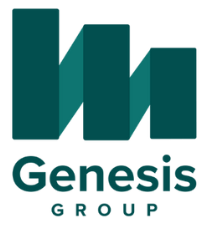Reading Time: 12 minutes
The Unique Challenges of Being Self-Employed in Mortgage Applications:

The landscape of the Canadian workforce is evolving, with an increasing number of individuals embracing self-employment. From freelancers to entrepreneurs, this shift represents a growing segment of the economy. However, when it comes to securing a mortgage, self-employed Canadians often face a unique set of challenges.
Embracing the Self-Employed Journey
A Rising Trend: Self-employment is becoming more prevalent in Canada, driven by flexibility, entrepreneurial spirit, and the evolving job market. This independence offers many advantages, but it also brings a different perspective, especially in financial matters like applying for a mortgage.
Understanding the Challenges
Navigating the Mortgage Maze: For the self-employed, obtaining a mortgage isn’t always straightforward. Traditional lenders typically look for consistent, predictable income – a scenario that doesn’t always align with the nature of self-employment.
Key Challenges Include:
- Proof of Income: Demonstrating stable income can be challenging for self-employed individuals, whose earnings may fluctuate or not be reflected accurately through traditional documentation.
- Verification Processes: Lenders often require more extensive paperwork and proof of income stability from self-employed applicants, which can make the application process more complex.
- Credit Score and History: Maintaining a robust credit score is crucial, yet the irregular income streams common in self-employment can impact financial stability and creditworthiness.
For self-employed Canadians, the path to homeownership might seem filled with obstacles, but understanding these challenges is the first step toward overcoming them. Recognizing the specific issues faced in the mortgage application process can empower self-employed individuals to prepare more effectively, positioning themselves as strong candidates for mortgage approval.

Understanding Lender Concerns

For self-employed individuals looking to dive into the Canadian real estate market, comprehending the lender’s perspective is a pivotal step. Recognizing why lenders may view self-employed applicants as higher risk can illuminate the path to successfully navigating these concerns and securing a mortgage.
Lender’s Perspective on Self-Employment
Perceived Risks: Lenders are inherently risk-averse, aiming to ensure that borrowers can consistently meet their mortgage obligations. From a lender’s viewpoint, self-employed individuals often embody a higher risk due to the perceived volatility and unpredictability of their income. Unlike traditional salaried positions, where income is regular and predictable, self-employed earnings can fluctuate significantly, influenced by market trends, seasonal demands, and the overall health of the economy.
Assessing Financial Stability: The crux of the lender’s concern lies in the ability to prove financial stability and reliable income. For those with traditional employment, a steady paycheck serves as a clear indicator of financial security. In contrast, self-employed individuals must navigate a more complex process to demonstrate their financial health, often requiring additional documentation and a longer track record of income stability.
Income Verification Challenges
Proving Stable Income: The complexity of proving stable income is a notable challenge for self-employed mortgage applicants. Traditional lenders typically request two to three years of Notice of Assessments (NOAs) and T1 Generals to verify income. However, because many self-employed individuals take advantage of tax deductions and write-offs, their taxable income may appear lower than their actual earnings, complicating the qualification process.
Documentation and Preparation: Beyond tax documents, lenders may also require bank statements, contracts, client invoices, and financial statements from your business. This exhaustive documentation serves to paint a comprehensive picture of your financial situation, but gathering and organizing these documents can be a daunting task.
Navigating the Verification Process: For self-employed individuals, the income verification process is not only about demonstrating earnings but also proving that these earnings are sustainable and reliable over time. Lenders may scrutinize the longevity and success of the business, the industry’s stability, and the applicant’s ability to generate consistent income in the future.

Preparing Your Application: A Guide for Self-Employed Canadians

Navigating the mortgage application process as a self-employed individual in Canada involves meticulous preparation and organization. Understanding the specific documentation requirements and how to present a stable financial profile can significantly enhance your chances of approval. Here’s a comprehensive look at how you can prepare your application for success.
Documentation Requirements
Essential Financial Documents:
- Personal Identification: Valid government-issued ID to confirm your identity.
- Proof of Income: This includes your Notice of Assessment (NOA) from the Canada Revenue Agency for the past two years, which verifies your reported income and taxes paid.
- T1 General Tax Returns: Alongside the NOAs, include your T1 General returns, particularly if your income varies significantly from year to year.
- Business Financial Statements: For those who operate a business, detailed financial statements prepared by a certified accountant can provide a clear picture of the business’s financial health.
- Proof of Self-Employment: This could be a business license, articles of incorporation, or contracts showing a consistent flow of work.
- Bank Statements: Recent statements can demonstrate regular income deposits and healthy cash flow.
Gathering these documents early in the process can save time and demonstrate to lenders your thoroughness and seriousness about the mortgage application.
Improving Financial Profile
Strategies for a Stronger Application:
- Minimize Debt: Before applying, work on reducing your debt-to-income ratio by paying down credit cards, loans, and other debts. A lower ratio makes you a less risky prospect to lenders.
- Maintain Healthy Cash Reserves: Lenders like to see that you have sufficient reserves to cover mortgage payments during leaner months, especially important for those with fluctuating incomes.
- Strengthen Your Credit Score: Ensure timely payment of all bills and debts. A higher credit score can significantly improve your mortgage terms.
- Separate Personal and Business Finances: This can help clarify your personal income and expenses, making it easier for lenders to assess your financial stability.
- Consider a Larger Down Payment: If possible, offering a larger down payment can alleviate lender concerns about income variability and reduce your loan-to-value ratio.
Approaching your mortgage application with a well-organized and strategic mindset can make all the difference. By providing comprehensive documentation and showcasing a stable financial profile, self-employed individuals can navigate the complexities of the mortgage process more effectively.

Strategies to Boost Mortgage Approval Chances

Securing a mortgage as a self-employed individual in Canada requires a strategic approach to navigate the unique challenges posed by irregular income streams and stringent lender requirements. Enhancing your mortgage approval chances involves a multifaceted plan focusing on creditworthiness, debt management, and financial preparedness.
Building a Strong Credit History
The Foundation of Your Application:
- Credit Scores Matter: A strong credit history is paramount in proving to lenders that you are a low-risk borrower. Your credit score influences not just approval odds but also the interest rates offered.
- Improvement Strategies: Consistently pay bills on time, keep credit card balances well below their limits, and avoid applying for new credit lines unnecessarily. Regularly check your credit report for errors and dispute any inaccuracies you find.
Reducing Debt-to-Income Ratio
Balancing Your Financial Obligations:
- Understanding Debt-to-Income (DTI) Ratio: Lenders evaluate your DTI ratio to assess your ability to manage monthly payments. A lower DTI ratio signals that you have sufficient income to cover new debt.
- Strategies for Reduction: Pay down existing debts, particularly high-interest credit cards and loans. Consider restructuring business debts where possible and avoid taking on new debts before applying for a mortgage.
Saving for a Larger Down Payment
The Impact of a Substantial Down Payment:
- Enhancing Approval Chances: A larger down payment reduces the loan-to-value ratio, diminishing the lender’s risk. This can lead to more favorable mortgage terms, including lower interest rates.
- Planning for Savings: Allocate a portion of your income towards a down payment fund. Explore savings accounts that offer competitive interest rates to grow your savings more effectively.
Implementing these strategies requires discipline and planning but can significantly improve your prospects of mortgage approval. Whether you’re just starting your self-employment journey or are an established entrepreneur, taking proactive steps to enhance your financial profile is crucial.

Alternative Mortgage Solutions

In the diverse landscape of the Canadian real estate market, securing a mortgage as a self-employed individual can sometimes require thinking outside the traditional banking box. Alternative mortgage solutions, such as those offered by B-lenders and private lenders, provide viable options for those who might not meet the strict criteria set by traditional banks. Understanding these alternatives, as well as the invaluable role of mortgage brokers, can open doors to homeownership that many self-employed Canadians might not have thought possible.
Exploring B-Lenders and Private Lenders
B-Lenders: These are financial institutions that offer more flexible lending criteria than traditional banks. While they still require proof of income and creditworthiness, B-lenders are often more accommodating to self-employed individuals, accepting a wider range of income verification documents. The trade-off typically involves slightly higher interest rates due to perceived increased risk.
Private Lenders: For those who find it challenging to secure a mortgage through both traditional banks and B-lenders, private lenders may be the solution. These are individuals or companies willing to lend money outside of the conventional financial system. Private lenders are often more flexible regarding income verification and credit scores, making them a suitable option for self-employed borrowers with unique financial situations. However, this flexibility usually comes with higher interest rates and fees.
The Role of Mortgage Brokers
Navigating the realm of alternative mortgage solutions is where the expertise of a mortgage broker becomes invaluable. The Genesis Group, with its award-winning experience and deep understanding of the Canadian real estate market, plays a crucial role in this process.
Personalized Guidance: Our mortgage brokers provide personalized advice, helping you understand the nuances of each lending option and how they fit into your overall financial picture.
Access to a Wide Network: We have established relationships with a wide array of lenders, including B-lenders and private financiers, ensuring you have access to the best possible mortgage solutions tailored to your unique circumstances.
Streamlined Application Process: The Genesis Group‘s mortgage brokers simplify the application process, managing paperwork and negotiations on your behalf, making the journey to homeownership as smooth as possible for self-employed individuals.
Choosing the right mortgage solution involves considering your financial situation, long-term goals, and the specifics of your self-employment income. For many, exploring alternative lending paths with the guidance of a knowledgeable mortgage broker can make all the difference in achieving homeownership.

Success Stories: Self-Employed Homeowners

The journey to homeownership for self-employed individuals can be fraught with unique challenges and hurdles. However, with the right guidance and strategy, many have successfully navigated this path, securing their dream homes against the odds. Here, we celebrate the victories of self-employed homeowners across Ontario, Canada, whose stories of collaboration with The Genesis Group illuminate the path to success.
Triumph in Toronto: Emma’s Art Studio
Emma’s Story: Emma, a self-employed artist in Toronto, faced the common challenge of proving stable income to potential lenders. Despite her successful art studio and steady sales, traditional banks were hesitant. Turning to The Genesis Group, Emma found the expertise she needed.
Strategies for Success:
- Detailed Financial Documentation: With guidance, Emma compiled comprehensive financial records, showcasing the stability and growth of her income over the past three years.
- Customized Lender Matching: The Genesis Group identified a lender who valued the potential in self-employed applicants, presenting Emma’s case with a compelling narrative.
Key Takeaway: Emma’s story underscores the importance of thorough financial documentation and the advantage of working with a mortgage broker who understands the self-employed market.
Breakthrough in Brampton: David’s Tech Consultancy
David’s Story: David, running a successful IT consultancy in Brampton, struggled with the fluctuating nature of his contracts when applying for a mortgage. The Genesis Group stepped in to help David frame his financial story.
Strategies for Success:
- Leveraging Business Assets: By demonstrating the value of his long-term contracts and recurring clients, David could present a more stable income forecast.
- Exploring Alternative Lending: The Genesis Group guided David towards a B-lender with more favorable terms for his unique situation.
Key Takeaway: David’s journey highlights the value of leveraging business assets and the effectiveness of alternative lenders for self-employed professionals.
Innovation in Ottawa: Leah’s Digital Marketing Firm
Leah’s Story: Leah, owner of a burgeoning digital marketing firm in Ottawa, found her dream home but faced obstacles with mortgage approval due to her newly established business. The Genesis Group offered the expertise Leah needed to navigate her mortgage application.
Strategies for Success:
- Strong Credit History: Leah worked on maintaining an excellent credit score, a factor that significantly bolstered her mortgage application.
- Strategic Financial Planning: Through meticulous planning and savings, Leah increased her down payment, significantly improving her loan terms.
Key Takeaway: Leah’s success story teaches the importance of a strong credit history and the impact of a sizable down payment on improving mortgage terms for self-employed individuals.

Empowering Self-Employed Homebuyers

The journey toward homeownership is a testament to one’s hard work, resilience, and determination, especially for self-employed individuals who face unique challenges in the mortgage application process. However, these obstacles are not insurmountable. With the right guidance, information, and resources, the dream of owning a home can become a reality, regardless of your employment status.
To all self-employed individuals embarking on this exciting yet daunting journey, let this be a word of encouragement: Your entrepreneurial spirit and ability to navigate the complexities of self-employment already demonstrate the resilience and savvy required to overcome the mortgage process. Remember, the road to homeownership, much like the path of self-employment, is about persistence, learning, and adapting to meet your goals.
The Genesis Group’s Commitment
At The Genesis Group, an award-winning mortgage brokerage with over 10 years of experience, we understand the unique financial scenarios faced by self-employed Canadians. Our commitment goes beyond securing loans; we’re dedicated to empowering you with the knowledge, strategies, and personalized mortgage solutions needed to navigate the complexities of the real estate market.
Our team of experts specializes in addressing the specific challenges of self-employed mortgage applicants, leveraging our extensive network of lenders, including those favorable to non-traditional income sources. We’re here to guide you through every step of the process, from preparing your application to celebrating your success as a homeowner.
If you’re self-employed and feeling uncertain about starting your home-buying journey, let The Genesis Group light the way. Contact us today for personalized mortgage solutions tailored to your unique situation. Together, we can turn your homeownership dreams into reality.
We also invite you to share your experiences, successes, or questions about obtaining a mortgage while self-employed. Your story could inspire and guide others in similar situations, creating a community of empowered self-employed homebuyers.

Glossary
Amortization Period: The total time period over which a mortgage loan is scheduled to be paid off. For example, a common amortization period in Canada is 25 years.
B-Lenders: Financial institutions that offer mortgage loans to individuals who may not meet the strict criteria of traditional banks, often due to non-traditional income sources or credit issues.
Credit Score: A numerical representation of a person’s creditworthiness, based on an analysis of their credit files. In Canada, credit scores range from 300 to 900, with higher scores indicating better creditworthiness.
Debt-to-Income Ratio (DTI): A measure used by lenders to determine an individual’s ability to manage monthly payments and repay debts. It is calculated as total monthly debt payments divided by gross monthly income.
Down Payment: The initial payment made when buying a home, typically expressed as a percentage of the purchase price. In Canada, the minimum down payment varies based on the home’s price.
Equity: The portion of the property’s value that the homeowner owns outright, without any mortgage debt. Equity increases as the mortgage is paid down and/or as the property value appreciates.
Fixed-Rate Mortgage: A mortgage with an interest rate that remains constant for the entire term of the loan, providing predictable payment amounts.
Mortgage Broker: A professional who acts as an intermediary between borrowers and lenders, helping to match borrowers with the best mortgage product for their needs.
Private Lenders: Individuals or companies that offer mortgage loans outside of the traditional financial system. These loans often come with higher interest rates and fees but can be an option for borrowers who cannot secure financing through conventional means.
Variable-Rate Mortgage: A mortgage with an interest rate that can fluctuate over the term of the loan, typically in line with changes in market interest rates.
FAQs
Can self-employed individuals get a mortgage in Canada?
Yes, self-employed individuals can get a mortgage in Canada, but they may need to provide additional documentation to prove their income and may also consider alternative lenders if they do not meet traditional lending criteria.
What kind of documentation do self-employed individuals need to apply for a mortgage?
Self-employed individuals typically need to provide proof of income (such as tax returns and financial statements), proof of down payment, business incorporation documents (if applicable), and a list of assets and liabilities, among other documents.
How can self-employed individuals improve their chances of mortgage approval?
Improving credit scores, reducing debt-to-income ratios, saving for a larger down payment, and working with a knowledgeable mortgage broker can all improve the chances of mortgage approval for self-employed individuals.
Why are B-lenders and private lenders options for self-employed individuals?
B-lenders and private lenders may offer more flexible lending criteria than traditional banks, making them suitable options for self-employed individuals who may not qualify for a mortgage through conventional means due to non-traditional income or credit issues.
How can a mortgage broker help self-employed individuals?
A mortgage broker can help by providing personalized advice, identifying the most suitable mortgage products, assisting with the application process, and leveraging their network of lenders to find options that accommodate the unique financial situations of self-employed individuals.

